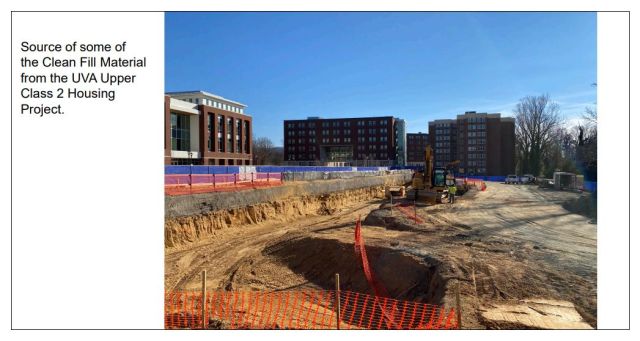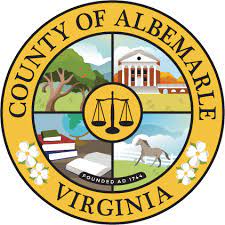The Rivanna Solid Waste Authority’s Board of Directors most recently met on March 22, 2022 and got an introduction to the budget for fiscal year 2023. The RSWA’s Board is made up of one Charlottesville City Councilor, one Albemarle Supervisors, two city staffers, two county staffers, and a citizen appointed by both elected bodies.
This year’s winter storms wreaked havoc on many trees across the region, and there was much debris for government crews and property owners. In January, the Rivanna Solid Waste Authority waived fees to drop off downed limbs and trees at the Ivy Materials Utilization Center where it was turned into mulch.
“We had so much mulch available after the free vegetative debris disposal program from the storm in January that we had so much mulch, we were giving away the first two tons and then charging people after that,” said Bill Mawyer, the executive director of the RWSA and the Rivanna Water and Sewer Authority.
Mawyer said the RSWA wanted to get rid of the material as quickly as possible before it became a fire hazard. As of this morning they’ve distributed 2,004 tons according to Phil McKalips, the RSWA’s Solid Waste Manager. He said they are hoping to run out by the end of next week.

Clean-fill pilot considered a success
Since February, the RSWA has been working with Faulconer Construction on a pilot project to have lower tipping fees for “clean fill” from sites where buildings and old landscapes have been removed. This is in response to new rules in Albemarle County, a locality that until recently allowed that material to more easily be buried underground. The lower fees are because Faulconer is doing some of the work.
“The contractor that brings in the fill is going to take responsibility for all of the grading, compaction, seeing, and installation of interim stormwater controls,” said Philip McKalips, the solid waste manager for RSWA.
As of last week, Faulconer had dropped off 17,000 tons that will be placed in an unused cell of the former landfill.
“In total they’re expected to deliver between 30,000 to 40,000 tons by the end of May,” McKalips said. “They might get done with that a bit sooner.”
One lesson learned is that the RSWA has needed to limit the number of trucks that can come through in a day to 120.
“We had up to 165 trucks in one day and with our other operations it was a bit of a stress for the site staff,” McKalips said. “They were having to do a lot of crowd control and managing traffic out towards Dick Woods Road and things that are not acceptable for long-term operations.”
Even though the tipping fee for clean-fill is lower, the pilot project has brought in over $60,000 in revenues to date. McKalips said other contractors are very interested in participating in the program.

The RSWA Board of Directors also got the first look at the agency’s $6.84 million budget for FY23. That’s based off of an anticipated $3.53 million in revenues and $3.3 million from local and state government. Albemarle County pays 82.2 percent of that amount, Charlottesville pays 15.3 percent, and the University of Virginia pays 2.4 percent.
Albemarle’s share is increasing next year to help cover the costs of operating the new Southern Convenience Center which is expected to open next January. There’s also a need to build a new baling facility to handle recycled paper and cardboard. A cost share will need to be worked out for how much each locality would pay. More details will be available at the RSWA’s next meeting in May.
To learn more about the programs of the RSWA, take a look at the budget presentation from the March 22, 2022 meeting. (view the budget presentation)
Before you go: The time to write and research of this article is covered by paid subscribers to Charlottesville Community Engagement. In fact, this particular installment comes from the March 29, 2022 edition of the program. To ensure this research can be sustained, please consider becoming a paid subscriber or contributing monthly through Patreon.











Mawyer writes, “The Transfer Station continues to receive about 146 tons per day of municipal solid waste and construction demolition debris, far exceeding the transfer goal of 89 tons per day hoped for when the tip fee was decreased and operating days were increased in FY 2018 – 2019.” This is NOT good news for the people who live near the Transfer Station and must listen to the trucks roaring constantly down Dick Woods Road, trucks that are not monitored for noise pollution, speeding, or unsecured trash. People live around here; there are school bus stops. I do not feel celebratory. The TS has over-expanded and become a blight to a beautiful and historic site in the county.